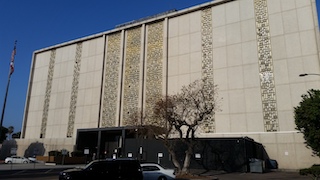Rehan Nazir, a former Torrance police officer who then became a bail bond agent, was arrested in June 2019 for kidnapping, false imprisonment and grand theft auto. Apparently, the police had been monitoring Nazir’s activities for some period of time.
Indeed, in their complaint, the People alleged over 35 counts against Nazir and in 22 of the counts that Nazir personally used a firearm and enhanced the sentence under Penal Code § 12022.5(a), an enhancement that could lengthen his sentence by three, four or ten years. The People also alleged the § 12022.5(d) enhancement that Nazir committed an assault with a deadly weapon or by means likely to produce great bodily injury by personally shooting a firearm from a vehicle, which could lengthen his sentence by three, four or ten years. They also alleged that Nazir personally used a firearm in the commission of a felony, within the meaning of Penal Code § 12022.53(b), an enhancement that could lengthen his sentence by ten years. The complaint was filed in the Norwalk Superior Court and assigned to Judge Lee W. Tsao.
On November 3, 2020, the voters elected George Gascon to replace Jackie Lacey as District Attorney.
On December 8, 2020, Los Angeles District Attorney George Gascon issued Special Directive 20-08, which made changes to the District Attorney’s Legal Policies Manual and instructed all Los Angeles District Attorneys to dismiss sentence enhancement allegations.
 Norwalk Courthouse
Norwalk Courthouse
Based on Special Directive 20-08, the district attorney assigned to Nazir’s complaint orally moved under Penal Code § 1385 to dismiss Nazir’s firearm enhancements. The prosecutor did not state any specific reason other than parroting the language in Special Directive 20-08.
The trial court judge denied the motion since the motion was based solely on the Special Directive, which was “not a permissible basis” on which to grant the motion. The judge explained that dismissal must be based on “an individualized consideration of the offense and the offender and not on any antipathy or disagreement with the statutory scheme.” The judge further explained that the People retained the right to simply file an amended complaint without the firearm enhancements.
The People, however, were apparently content with the ruling and did not file an amended complaint omitting the firearm enhancements.
However, Nazir certainly was not pleased with the ruling. Accordingly, he then filed a petition for writ of mandate, arguing that the judge’s ruling violated Nazir’s equal protection rights because Nazir would be punished more harshly than those defendants who were prosecuted for later crimes that had complaints filed in compliance with Special Directive 20-08 without the sentencing enhancement. Moreover, Nazir’s motion would be in furtherance of justice under 1385 because a defendant charged before the change in policy (such as Nazir) would be treated similarly to a defendant charged after the change in policy.
The Second Appellate District denied the writ because it determined that Nazir lacked standing to assert such claims. The People were the “losing” party and needed to file the writ of mandate, not Mr. Nazir, although he certainly was adversely affected by the ruling.
Nazir then filed a petition for review with the California Supreme Court, arguing that “the interests of society represented by the People” were reflected in the Special Directive and the same equal protection arguments as before.
The Supreme Court then granted the petition, transferring the matter to the Second Appellate District with directions to issue an order to show cause why the relief sought in the motion should not be granted.
In granting the petition, the Supreme Court explained that the trial court had abused its discretion by misunderstanding the scope of its discretion when it refused to consider Special Directive 20-08. The Supreme Court emphasized that the Special Directives explained that the directives were based on research showing the existing sentence enhancements do not deter crime or reduce recidivism, which are objectives of the criminal justice system a court may consider in determining whether to impose a firearm enhancement under Penal Code § 12022.5 or 12022.53, and thus were relevant to determining whether to dismiss an enhancement.
This article is presented for the reader’s attention because, while George Gascon may be soon or ultimately removed from office, the courts have recognized how his Special Directives could be considered in the furtherance of justice, and in a way, one might conclude Gascon “won” this fight over the resolve of his own DA’s and the trial court judges to eviscerate his policies.
The citation for the Second Appellate District Court ruling discussed above is Rehan Nazir v. Superior Court (2nd App. Dist., 2022) 79 Cal. App. 5th 478, 294 Cal. Rptr. 3d 681.
For more information about gun enhancements, please click on the following articles:
 Norwalk Courthouse
Norwalk Courthouse